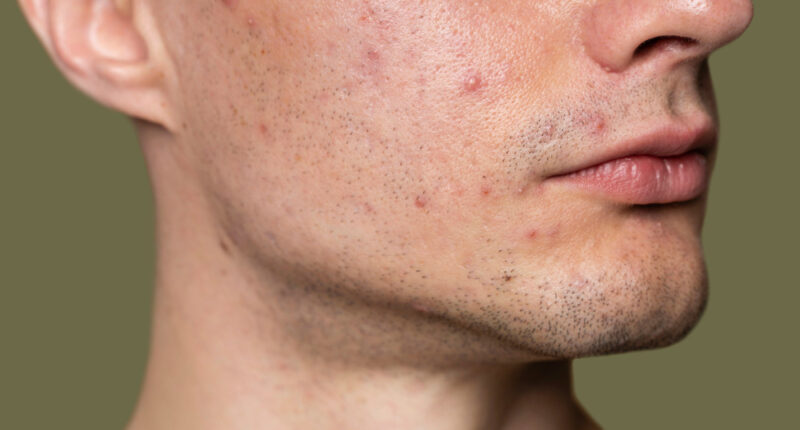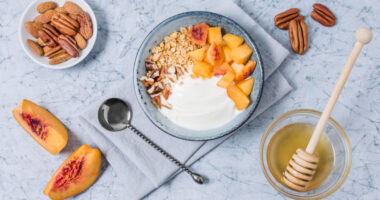Pimples can crop up on anyone, no matter their age or skin type. They can be frustrating and sometimes even painful, but with the right approach, you can manage and reduce them effectively. Here’s a comprehensive guide on the best ways to deal with pimples, from prevention to treatment.
Understanding Pimples
pimples appear when oil (sebum) and dead skin cells clog up hair follicles, and pimples start to form. Bacteria can then thrive in these clogged pores, leading to inflammation and the characteristic red, swollen bumps. Pimples are most common on the face, back, shoulders, and chest.
Prevention Strategies
1. Maintain a Regular Cleansing Routine
Cleanse your face twice daily with a gentle, non-comedogenic (won’t clog pores) cleanser. With this effective solution, say goodbye to excess oil, dirt, and impurities that can lead to pesky pimples. Be gentle with your skin! Over-cleansing can strip away its natural oils and make it produce even more oil.
2. Exfoliate Weekly
Exfoliating is vital for getting rid of those pesky dead skin cells that can clog up your pores. Use a gentle exfoliator with ingredients like salicylic acid or glycolic acid once or twice a week. Avoid harsh scrubs that can irritate the skin and exacerbate pimples.
3. Moisturize Appropriately
For those with oily or acne-prone skin, it is vital to prioritize moisturization. Opt for a lightweight, oil-free moisturizer that can effectively keep your skin hydrated while ensuring that it does not clog your pores. This type of moisturizer will help maintain the skin’s moisture balance without exacerbating oiliness or causing breakouts. Look for ingredients like hyaluronic acid, which provides hydration without adding oil.
4. Avoid Touching Your Face
Touching your face can transfer bacteria and oil from your hands to your skin, leading to more pimples. Try to keep your hands away from your face and avoid picking or squeezing pimples, which can cause scarring and further inflammation.
5. Choose Non-Comedogenic Products
Don’t forget to check for “non-comedogenic” on your skincare and makeup products to keep your skin happy and healthy. These products are carefully formulated to keep your pores clear and minimize the chance of getting pimples.
Effective Treatments for Pimples
1. Topical Treatments
Benzoyl Peroxide: Start with a lower concentration of this over-the-counter treatment to avoid irritation.
Salicylic Acid: This excellent beta-hydroxy acid (BHA) works wonders by exfoliating your skin, clearing out those pesky pores, and calming down any inflammation. It’s effective for both prevention and treatment of pimples.
Retinoids: Prescription-strength retinoids, such as tretinoin, promote cell turnover and prevent pores from becoming clogged. Over-the-counter options like adapalene are also available.
2. Spot Treatments
Spot treatments can be applied directly to individual pimples to reduce size and inflammation. Look for products containing benzoyl peroxide, salicylic acid, or sulfur. For the best results, apply these treatments at the first sign of a pimple.
3. Oral Medications
For more severe cases of acne, oral medications may be needed. These include:
Antibiotics: Help reduce bacteria and inflammation.
Oral Contraceptives: Can help regulate hormones that contribute to acne in women.
Isotretinoin: A powerful medication for severe cystic acne. When all else fails, this treatment comes to the rescue, but it needs careful supervision by a dermatologist.
Natural Remedies
1. Tea Tree Oil
Tea tree oil has antibacterial and anti-inflammatory properties. Dilute a few drops in a carrier oil and apply to pimples with a cotton swab. Be cautious, as undiluted tea tree oil can irritate.
2. Aloe Vera
Aloe vera soothes the skin and reduces inflammation. Apply pure aloe vera gel to the affected area to help calm redness and swelling.
3. Green Tea
Green tea contains antioxidants that can help reduce inflammation and bacteria on the skin. Apply cooled green tea to your skin with a cotton ball, or use skincare products that contain green tea extract.
Lifestyle Tips
1. Healthy Diet
A balanced diet can impact your skin’s health. Boost your skin’s health with a diet rich in antioxidants, vitamins, and minerals found in certain foods. Avoid excessive sugar and dairy, which some studies suggest may exacerbate acne.
2. Stay Hydrated
Drinking plenty of water helps flush toxins from your body and keep your skin hydrated. Remember to aim for at least eight glasses of water each day.
3. Manage Stress
Stress can lead to an increase in hormone production, ultimately causing the formation of pimples. Incorporate stress-reducing activities into your daily routine, such as exercise, meditation, or yoga.
Conclusion
Dealing with pimples requires a combination of proper skin care, effective treatments, and healthy lifestyle choices. By understanding the causes and implementing these strategies, you can manage and reduce pimples, leading to more precise, healthier skin. If your acne persists or is severe, consult a dermatologist for personalized advice and treatment options.









